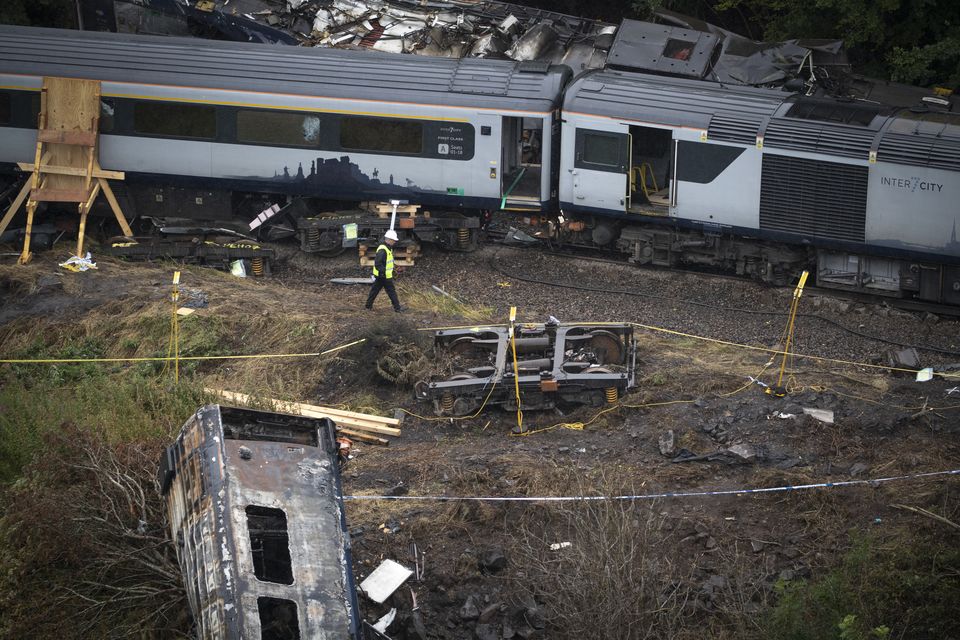The court process for a fatal accident inquiry into a train derailment which claimed three lives is to begin next month.
Train driver Brett McCullough, 45, conductor Donald Dinnie, 58, and passenger Christopher Stuchbury, 62, died after the derailment near Stonehaven, Aberdeenshire, on August 12 2020.
A criminal prosecution saw Network Rail fined £6.7 million last year after it admitted health and safety failings over the crash, which happened on a day of torrential rainfall.
The Crown Office and Procurator Fiscal Service (COPFS) has lodged a first notice with a sheriff court to begin the court process for a fatal accident inquiry (FAI).
A preliminary hearing will be held on January 29 at Aberdeen Sheriff Court.
Unlike criminal proceedings, FAIs are inquisitorial in nature, and are used to establish facts rather than apportion blame.
Procurator Fiscal Andy Shanks, who leads on fatalities investigations for COPFS, said: “The Lord Advocate considers that the deaths of Christopher Stuchbury, Donald Dinnie and Brett McCullough occurred in circumstances giving rise to serious public concern.
“This has been a highly complex and thorough large-scale investigation. The lodging of the first notice enables FAI proceedings to commence under the direction of the sheriff.
“While there has already been a number of lessons learned and industry-wide change made, an FAI will examine the full circumstances surrounding these tragic deaths, putting all relevant information into the public domain. The evidence will be tested in a public setting and be the subject of judicial determination.
“Our thoughts remain with the families, and they will continue to be kept informed of significant developments as court proceedings progress.”
The purpose of an FAI includes determining the cause of death, the circumstances in which the death occurred, and establishing what reasonable precautions could have been taken to minimise the risk of future deaths in similar circumstances.
The derailment happened in August 2020 (Jane Barlow/PA)
The Crown Office said that since the conclusion of the criminal proceedings it has been gathering and considering information from a number of sources around the wider circumstances and themes, which develop and extend beyond the issues raised in criminal proceedings.
At the High Court in Aberdeen in September last year, Network Rail admitted a series of failings that resulted in the deaths, pleading guilty to a charge covering the period from May 1 2011 to August 12 2020.
This included failing to inform the driver that it was unsafe to drive the train at 75mph, or caution him to reduce his speed amid bad weather on the day of the derailment, which also left six people injured.
A Rail Accident Investigation Branch (RAIB) report published in March 2022 found that errors in the construction of a drainage system installed by Carillion meant it was unable to cope with heavy rain which fell in the area on the morning of the crash.
Carillion went into compulsory liquidation in January 2018.
The RAIB report made 20 recommendations to improve railway safety, many of which were directed at Network Rail.
Network Rail previously said it is determined to build on the “significant changes” it has made since the incident, which have “helped us to manage the risk of severe weather to the network”, and it has invested millions to improve the resilience of the railway.
